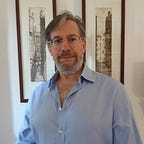Does politics need more scientists, or fewer?
Blair and Brown studied Clinton. Cameron and Osborne studied Blair. Sometimes Boris Johnson has seemed like some unstoppably rolling ball, that came next (pushing May aside). But one thing we know about gravity is that it is not, after all, a force in space-time; it is the way that space-time curves to adapt to the mass of an object. Political dimensions adapted to all these politicians. Boris became possible because Blair and Cameron made it so.
Without Clinton’s triangulation, no “Third Way” or New Labour; without that strategy of inventing a position which outflanked the lines of debate, no populism; without the consummate skill that politicians came to acquire in gaming their own system, no utter disdain for their truthfulness or despair that there was any point in voting.
You might even say that after this generation of change we have got politics down to the equivalent of a quantum level. Policies have no actual, fixed existence and take place in every possible configuration with a different degree of probability right up to the point that the micro-sampling makes one real. The Clinton- or Bush-era worm (a graph line showing audience approval or disapproval in real time), and even the Blairist focus group, are the equivalent of Clerk Maxwell. What positions a politician will take are purely statistical outcomes. Messages are no longer crafted, then put to voters; they are put to voters, and then crafted.
Well, Dominic Cummings used to say that there were not enough scientists in the civil service. It’s an ancient complaint going back to C.P. Snow’s “two cultures”, in 1959. The real difficulty is that politics itself has been made a technique. The fashion now is to apply control techniques to government as well as politics, moving or nudging real people around as though they were automatic bodies.
What is missing is some humanities training on the part of the populace: the courage to think critically, not procedurally; imagination to speculate that our paradigm itself may be flawed; some impulse against our own atomism. Liberal arts, to fight the dark arts.
What we may need now is no political Newton or Einstein, but a Rupert Sheldrake — something that Corbyn and Boris had only pretended to be.
